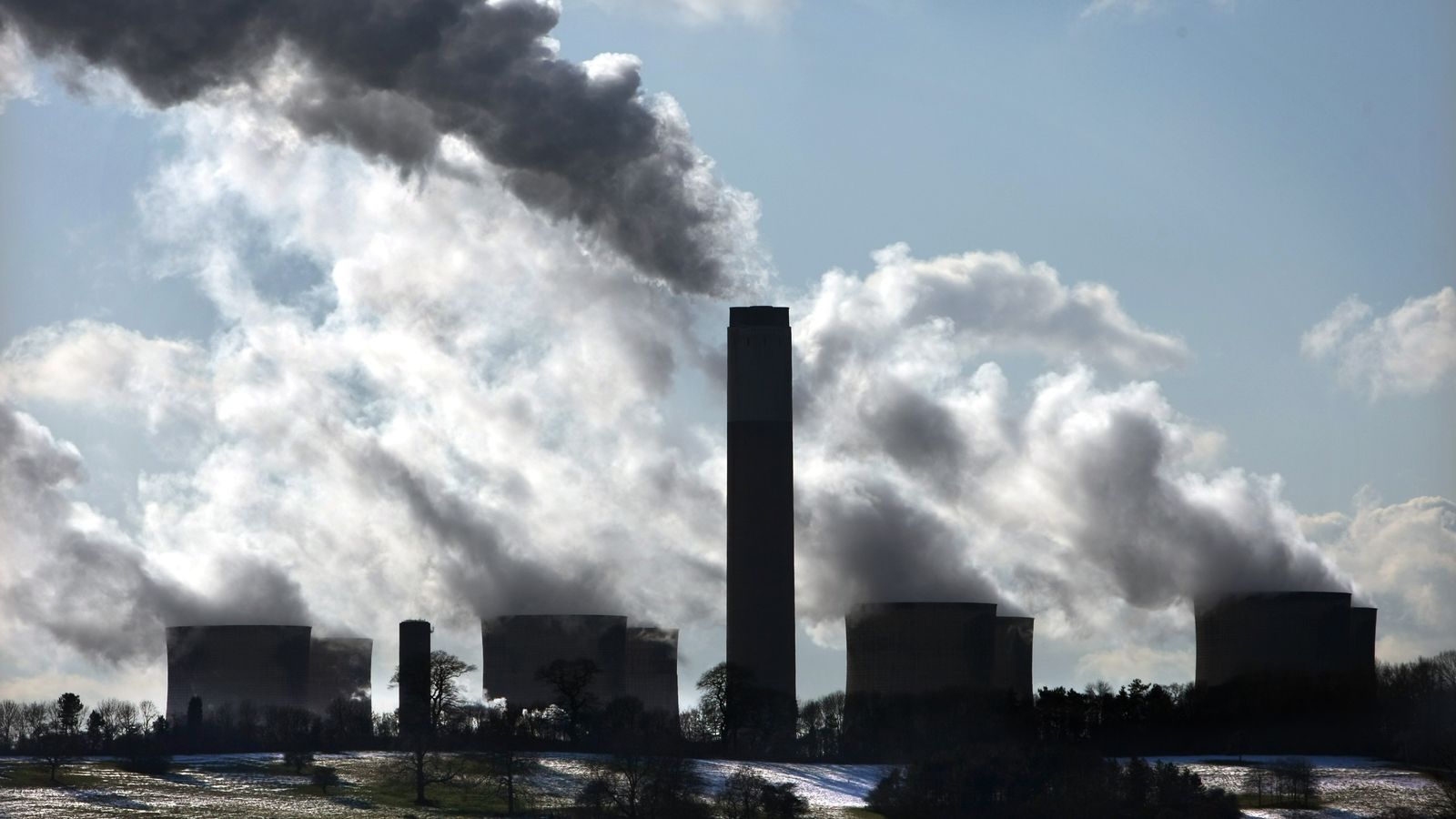Climate-heating greenhouse gases coming from the UK fell last year, partly because soaring costs forced businesses and households to cut back on power.
Overall, emissions of gases like carbon dioxide and methane from within the UK’s borders fell by 5.4% in 2023 compared with 2022 levels.
That brings the total to a new recent low of 384.2 million tonnes carbon dioxide equivalent (MtCO2e), according to the provisional 2023 figures released on Thursday by the energy security department (DESNZ).
That’s lower than the levels during the lockdown year of 2020, and means the UK’s emissions overall have fallen 53% since 1990 – greater than any other G20 economy.
But the drop last year was largely due to higher electricity imports and people struggling with the cost of living, officials admitted.
Energy security secretary Claire Coutinho said: “This latest drop in our emissions follows the UK’s achievement in becoming the first major economy to halve its polluting carbon emissions.”
The sector that saw the greatest drop last year was electricity supply, with a fall of 20%.
Former cost-of-living tsar Buttress to run Ovo Energy
Nearly four million smart meters are faulty, figures show
National Grid: Nearly £60bn energy grid upgrade needed to hit green target
That’s because the UK imported more electricity from France, unlike in 2022 when the UK had higher than usual exports – as Europe grappled with gas shortages after Russia invaded Ukraine – according to DESNZ.
In 2022, the grid net exported 1.1GW of electricity to France, but in 2023 it returned to being a net importer of 1.5GW, comparable to 2021 import levels of 1.6GW.
But there was also a big fall in electricity use in homes and businesses, “largely as a result [of] reduced demand for heating due to high energy and other costs”, DESNZ said.
‘No surprise’ at impact of cost of living
Glenn Rickson, who analyses the UK power sector for S&P Global Commodity Insights, said “budgets were squeezed” by interest rates, inflation, mortgages as well as high bills.
Although some homes cut emissions by installing heat pumps, the “cost effect” had a much greater impact on emissions from households, he said.
Jess Ralston, from thinktank ECIU, told Sky News: “I am not surprised that heat demand was down due to expensive prices – everyone has been feeling the pinch of the gas crisis in their energy bills.”
She urged the government to increase home insulation and build further renewables, rather than pursue “its narrative on maxing out oil and gas in the North Sea, despite admitting that it won’t help with our bills”.
Please use Chrome browser for a more accessible video player
The Conservative government has increasingly pushed the benefits of pumping as much oil and gas as possible from the North Sea, saying it is compatible with emissions and climate goals.
It says it is “committed to reaching its climate targets in a realistic way, while securing more clean energy investment”.
In November, Prime Minister Rishi Sunak used the high-profile King’s Speech to announce oil and gas licences should be given out annually – though this has been happening most years anyway.
But the UK’s emissions are not falling fast enough to reach its target of slashing emissions by 68% by 2030, the government’s Climate Change Committee said in October.
It warned emissions reductions outside the electricity sector need to accelerate four-fold to meet the 2030 target, with slow progress on tackling heating.
“Although the government has high ambition for heat pump installation, the UK had the lowest number of heat pumps installed per capita in 2022 compared to neighbouring countries,” the CCC said.






















